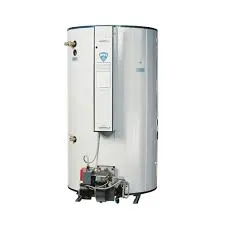Aug . 21, 2024 12:00 Back to list
Aluminum Casting Production Services for Quality and Precision Manufacturing Solutions
The World of Aluminum Casting An Insight into Manufacturers and Their Importance
Aluminum casting has become an essential process in various industries, ranging from automotive and aerospace to electronics and construction. The versatility and lightweight nature of aluminum make it an ideal material for casting, resulting in a burgeoning market for aluminum casting manufacturers. This article explores the significance of aluminum casting manufacturers, the processes involved, and the advancements in technology that are shaping the industry.
Understanding Aluminum Casting
Aluminum casting involves pouring molten aluminum into a mold to create specific shapes and components. This manufacturing technique can be categorized into several processes, including sand casting, die casting, and investment casting. Among these, die casting is particularly favored for its ability to produce complex shapes with high precision and a smooth finish. Aluminum castings are renowned for their excellent strength-to-weight ratio, resistance to corrosion, and ability to conduct heat and electricity, making them suitable for a wide array of applications.
The Role of Aluminum Casting Manufacturers
Aluminum casting manufacturers play a pivotal role in the supply chain of numerous industries. They are responsible for transforming raw aluminum into finished products that meet stringent quality standards. The manufacturing process involves several stages material selection, mold design, melting and pouring, and finally, finishing operations, which may include machining, surface treatments, and quality inspections.
Quality control is paramount in aluminum casting. Reputable manufacturers invest in advanced technologies and skilled labor to ensure that their products meet the required specifications. Most manufacturers adhere to international standards such as ISO 9001 to demonstrate their commitment to quality and customer satisfaction.
Technological Advancements in Aluminum Casting
aluminum casting manufacturer

The aluminum casting industry has undergone significant technological advancements in recent years. Automation and computer-aided design (CAD) software have streamlined the manufacturing process, improving efficiency and precision. Additionally, the adoption of artificial intelligence (AI) and machine learning is allowing manufacturers to predict potential defects and optimize their production processes.
3D printing technology is also making waves in the aluminum casting sector. It enables the production of complex molds that were once difficult or impossible to achieve with traditional methods. This innovation not only reduces lead times but also provides greater design flexibility, allowing manufacturers to respond more effectively to customer demands.
Sustainability Practices in Aluminum Casting
As industries become increasingly aware of their environmental impact, aluminum casting manufacturers are prioritizing sustainability in their operations. Recycling aluminum is a significant focus, as it requires only 5% of the energy needed to produce new aluminum from raw materials. Many manufacturers are investing in recycling plants and implementing closed-loop systems to minimize waste.
Moreover, advancements in energy-efficient melting technologies and materials handling are helping to reduce the carbon footprint of aluminum casting processes. By embracing sustainable practices, manufacturers can contribute to environmental conservation while also appealing to eco-conscious consumers and industries.
Conclusion
Aluminum casting manufacturers are crucial players in today’s industrial landscape, providing essential components across a variety of sectors. With ongoing technological advancements and a commitment to sustainability, the industry is poised for continued growth and innovation. As the demand for lightweight and durable materials rises, the role of aluminum casting manufacturers will only become more significant, driving progress and ensuring that industries can meet the challenges of the future. Manufacturers who embrace these changes will not only enhance their competitiveness but also contribute positively to the global economy and environment.
-
Durable Centrifugally Cast Iron Water Main Pipe
NewsAug.11,2025
-
Centrifugally Cast Iron Water Main Pipes for Reliability
NewsAug.10,2025
-
High-Quality Centrifugally Cast Iron Water Main Pipes
NewsAug.09,2025
-
Durable Cast Iron Water Main Pipe & Drainage Solutions
NewsAug.08,2025
-
Buy Cast Iron Pipe: Premium Ductile Iron & Drain Solutions
NewsAug.07,2025
-
Durable Cast Iron Water Main Pipe | Buy Ductile Pipe
NewsAug.06,2025


